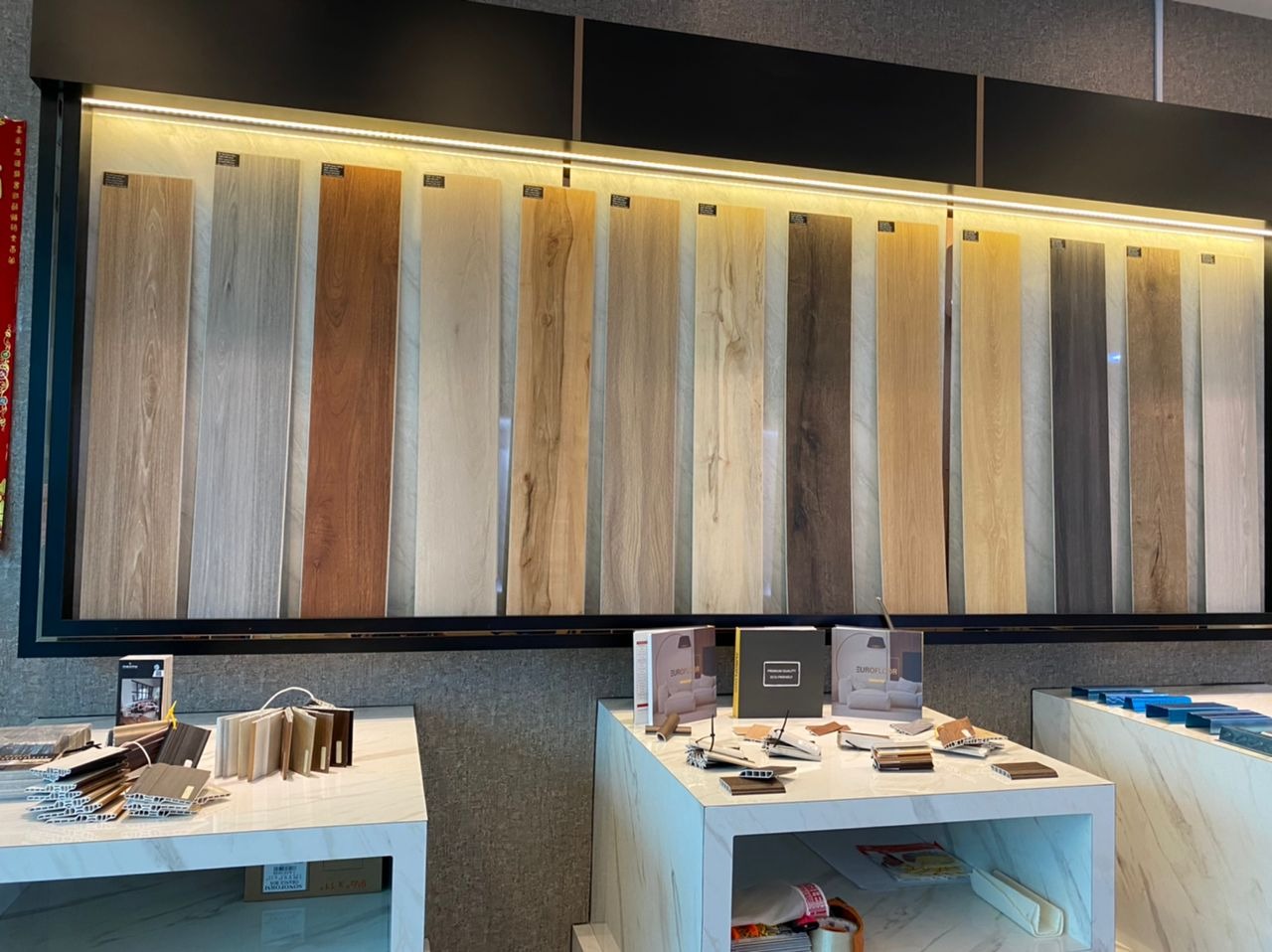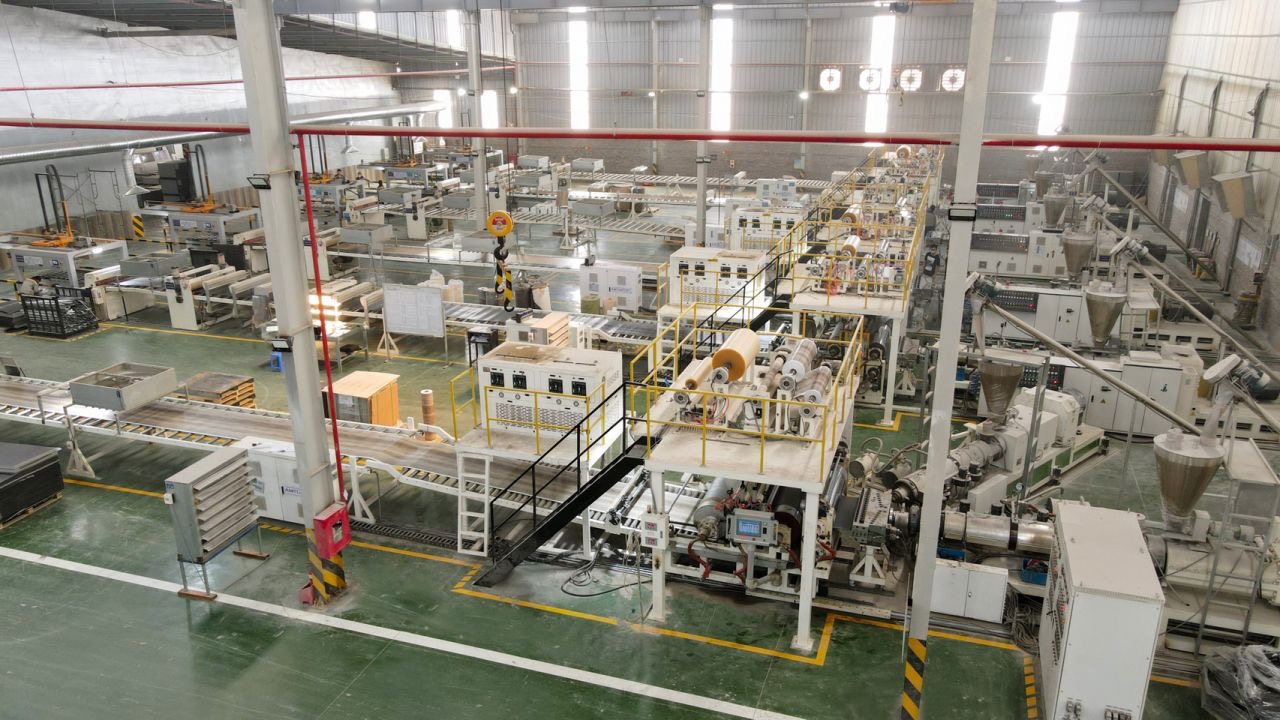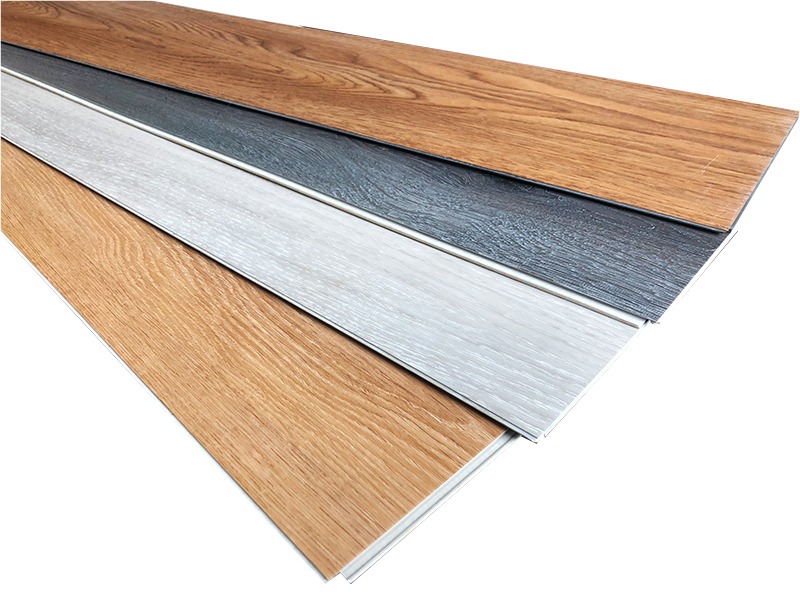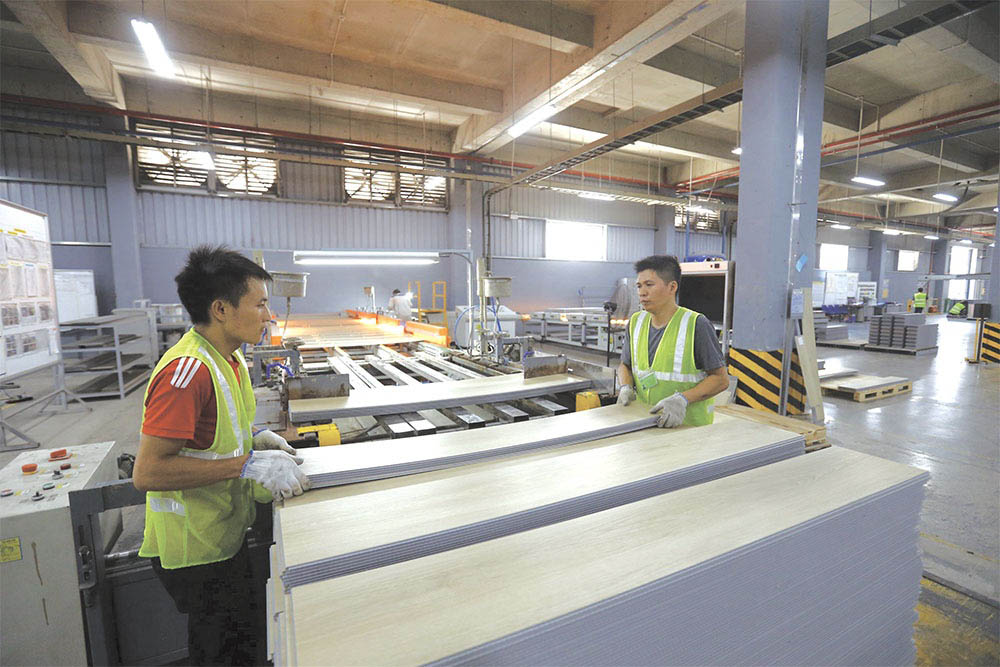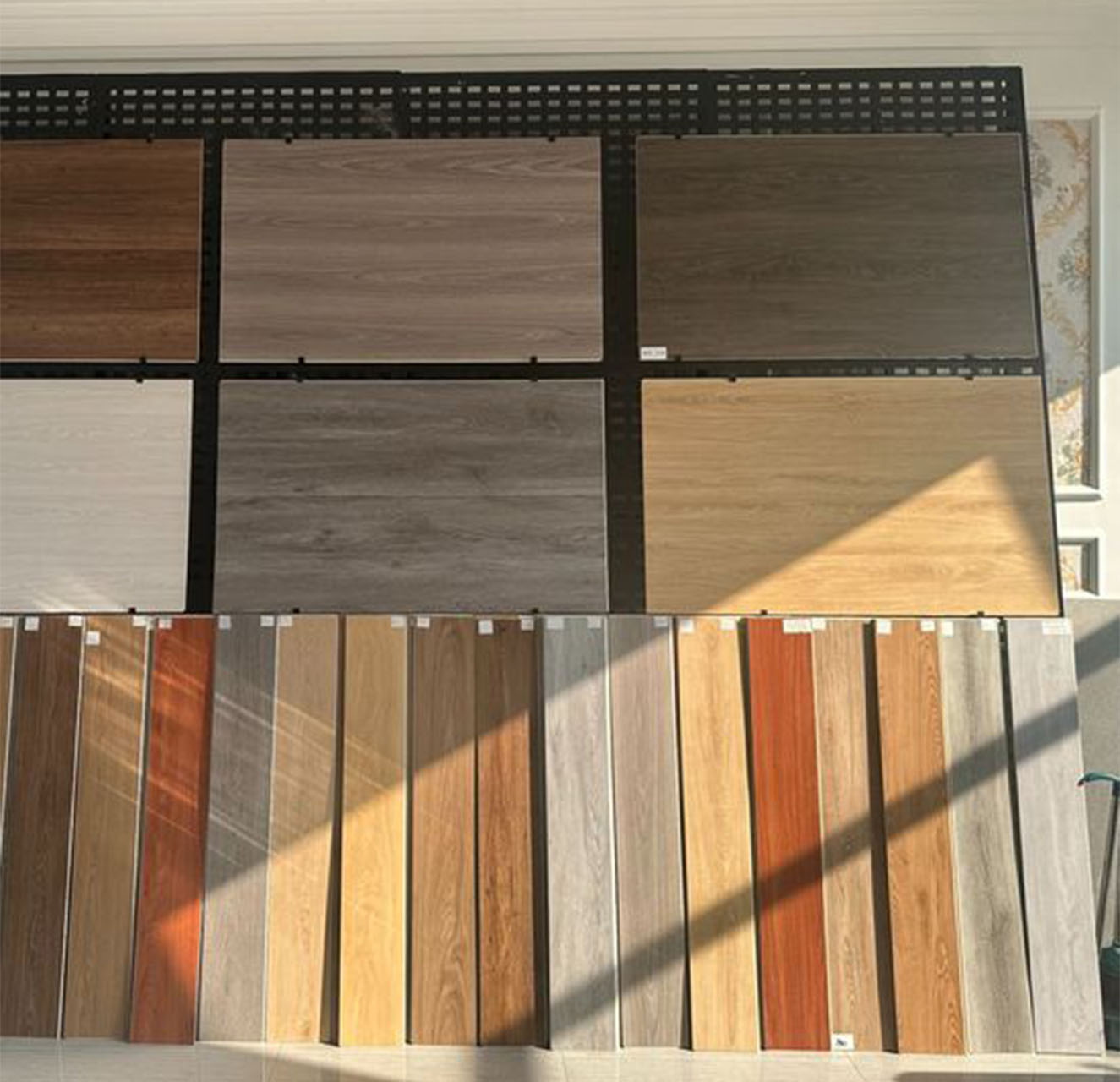Introduction
Launching a flooring brand feels daunting when you’re juggling tight budgets, inconsistent suppliers, and fierce market competition. Entrepreneurs and retail chains need a smarter way to stand out without breaking the bank.
That’s where SPC flooring OEM partnerships shine. By offering tailored designs, flexible MOQs, and reliable global distribution, they empower businesses to create unique, profitable brands. This guide breaks down how to leverage customization and strategic packaging to succeed.
Why SPC Flooring is Ideal for Your Private-Label Brand
SPC flooring, or stone plastic composite, is a game-changer for private-label brands looking to stand out. Its unique blend of durability, style, and affordability makes it a top choice for both residential and commercial spaces. For businesses eyeing an SPC flooring OEM partnership, understanding its value is key to building a brand that resonates with customers.
What is SPC Flooring?
SPC flooring is a type of rigid core flooring made from a mix of limestone, polyvinyl chloride, and stabilizers. This combo creates a strong, waterproof core that resists dents and scratches. It’s perfect for anyone wanting a low-maintenance yet stylish flooring option.
SPC flooring’s rigid core offers unmatched durability, making it a smart pick for high-traffic areas in homes and businesses.
Composition and Core Benefits
The magic of SPC lies in its layers. A wear layer protects against scratches, a vinyl layer adds vibrant designs, and the rigid core ensures stability. These features make private label SPC flooring a durable, cost-effective choice for branding.
Unlike traditional hardwood, SPC doesn’t warp or fade easily. Its click-lock system also simplifies installation, saving time and money. This makes it a solid option for OEM partnerships aiming for quality and efficiency.
Advantages for Commercial and Residential Use
SPC flooring shines in busy spaces like retail stores or offices, thanks to its waterproof and scratch-resistant nature. For homes, it’s a hit in kitchens and bathrooms where spills are common. Its versatility makes it a go-to for SPC flooring OEM brands targeting diverse markets.
Another perk? SPC is eco-friendly, often made with recyclable materials. This appeals to customers who value sustainability, giving your brand a competitive edge.
Market Demand for Stone Plastic Composite Flooring
The demand for SPC flooring is booming. Industry reports show a 7.5% annual growth rate for rigid core flooring, driven by its affordability and performance. Consumers love its ability to mimic wood or stone without the hefty price tag.
For private-label brands, this trend is a golden opportunity. Partnering with a reliable OEM can help you tap into this growing market with customized designs that scream “dope” style.
How SPC Aligns with Modern Design Trends
Today’s design trends lean toward clean, natural looks, and SPC delivers. With realistic wood and stone textures, it fits perfectly in minimalist or industrial-style spaces. Its wide range of colors and patterns lets brands stay on-trend.
Plus, SPC’s easy upkeep appeals to busy homeowners and businesses. This practicality, paired with its chic vibe, makes it a top pick for modern interiors.
SPC Flooring Performance Metrics
| Feature | SPC Flooring | Hardwood | Laminate | Industry Benchmark |
|---|---|---|---|---|
| Water Resistance | 100% | 20% | 60% | 80% |
| Scratch Resistance | 90% | 40% | 70% | 75% |
| Installation Time (hrs/100 sq ft) | 2 | 6 | 3 | 3.5 |
| Cost ($/sq ft) | 3.5 | 8 | 2.5 | 4 |
| Eco-Friendliness | High | Medium | Low | Medium |
Note: Water resistance is tested under 24-hour submersion; scratch resistance follows ASTM F1914 standards; eco-friendliness reflects recyclable content.
Selecting the Right OEM Flooring Manufacturer
Choosing the best SPC flooring OEM can make or break your private-label brand. A reliable partner ensures quality, scalability, and compliance with global standards. This guide breaks down the key steps to find an OEM flooring manufacturer that aligns with your goals.
Key Criteria for Evaluating OEM Flooring Manufacturers
Start by checking a manufacturer’s track record. Look for experience in producing SPC flooring and a reputation for consistency. A good SPC flooring OEM should offer customization options to match your brand’s vision.
Quality control is another must. Factories with strict testing processes reduce defects and returns. Visiting their facility, if possible, gives you a firsthand look at their operations.
Partnering with a certified OEM flooring manufacturer guarantees products that meet global safety and quality standards, boosting brand trust.
Importance of ISO, CE, and Other Certifications
Certifications like ISO and CE are non-negotiable for SPC flooring suppliers. ISO ensures consistent production processes, while CE confirms compliance with European safety standards. FloorScore certification is a bonus for eco-conscious brands.
These credentials protect your business from legal risks, especially for international markets. Always verify certificates directly with the issuing bodies to avoid fakes.
Assessing Production Capacity and Scalability
Your OEM partner must handle your current and future needs. Check their production capacity—can they produce thousands of square feet daily? Scalability matters as your brand grows, so ask about their ability to ramp up output.
A top SPC flooring OEM will have modern equipment and skilled staff. This ensures they can deliver on time without sacrificing quality, keeping your supply chain tight.
Red Flags to Avoid in OEM Partnerships
Watch out for manufacturers who lack transparency. If they dodge questions about sourcing or testing, move on. Poor communication is another warning sign—reliable partners keep you updated.
Avoid factories with outdated machinery or limited design options. These can lead to delays or products that don’t stand out in competitive markets.
OEM Manufacturer Evaluation Metrics
| Criteria | Top-Tier OEM | Average OEM | Low-Tier OEM | Industry Standard |
|---|---|---|---|---|
| Daily Output (sq ft) | 50,000 | 20,000 | 5,000 | 30,000 |
| Defect Rate (%) | 0.5 | 2 | 5 | 1.5 |
| Certification Compliance | ISO, CE, FloorScore | ISO, CE | None | ISO, CE |
| Lead Time (days) | 10 | 20 | 30 | 15 |
| Customization Options | High | Medium | Low | Medium |
Note: Defect rate based on ASTM D6007 testing; lead time reflects standard order of 10,000 sq ft; customization includes pattern and color variety.
Customization Options to Build a Unique SPC Brand
Creating a standout private-label brand with SPC flooring OEM starts with customization. Tailoring designs, sizes, and finishes helps your brand meet specific market demands while staying competitive. Let’s dive into how SPC flooring customization can set your brand apart.
Tailoring Designs: Colors, Patterns, and Textures
Custom SPC flooring offers endless design possibilities. From realistic wood grains to sleek stone textures, you can choose colors and patterns that vibe with your target audience. These options let your brand reflect trends like minimalist or rustic aesthetics.
Textures add another layer of appeal. A matte finish might suit modern offices, while embossed surfaces mimic hardwood for homes. Working with an OEM ensures these designs are both eye-catching and durable.
Custom SPC flooring lets brands create unique designs that appeal to niche markets, driving customer loyalty and sales.
Custom Dimensions and Thickness for Specific Applications
Not all spaces need the same flooring specs. SPC flooring customization includes adjusting plank sizes or thicknesses for specific uses, like heavy-duty commercial spaces or cozy homes. For example, thicker planks handle high-traffic retail better.
Custom dimensions also help with installation efficiency. Tailored sizes reduce waste, saving costs and appealing to eco-conscious buyers.
Branding Through Logos and Surface Treatments
Want your brand to shine? Add logos or unique surface treatments through your SPC flooring OEM. Techniques like UV coatings boost scratch resistance while enhancing visual pop.
These touches make your flooring instantly recognizable. They also signal quality, helping your brand build trust in competitive markets.
Balancing Aesthetics with Functionality
Looks aren’t everything—functionality matters too. Custom SPC flooring can include features like enhanced waterproofing for bathrooms or slip resistance for offices. These practical tweaks keep customers happy and loyal.
The trick is finding the sweet spot between style and performance. A fire design paired with durability ensures your brand stays ahead of the pack.
SPC Customization Features Comparison
| Feature | Standard SPC | Custom SPC | Luxury Vinyl | Industry Benchmark |
|---|---|---|---|---|
| Color Options | 10 | 50+ | 20 | 30 |
| Texture Variety | 3 | 10 | 5 | 7 |
| Thickness Range (mm) | 4-5 | 3-8 | 4-6 | 4-7 |
| Logo Integration | No | Yes | Rare | Optional |
| UV Coating Durability (years) | 5 | 10 | 7 | 8 |
Note: Color options based on manufacturer catalogs; durability tested per ASTM F410; texture variety includes embossing types.
Streamlining Production and Packaging for Market Success
Building a standout private label SPC flooring brand hinges on efficient production and smart packaging. Partnering with a reliable SPC flooring OEM ensures timely delivery and top-notch quality that customers trust. Let’s explore how to streamline these processes for market success.
Understanding OEM Production Schedules and Timelines
Clear production schedules are key to meeting market demands. A dependable OEM provides detailed timelines, from design to delivery, typically spanning 10-20 days for standard orders. Aligning these with your sales forecasts keeps your inventory on point.
Regular updates from your OEM help avoid delays. Factories with automated systems can boost output, ensuring your brand stays ahead of competitors.
Efficient OEM production timelines ensure private-label brands meet customer demand without costly delays, building trust and reliability.
Designing Custom Packaging for Brand Visibility
Packaging isn’t just protection—it’s a billboard for your brand. Custom designs with bold logos and vibrant colors make your SPC flooring OEM products pop on shelves. Eco-friendly materials also appeal to green-conscious buyers.
Smart packaging reflects your brand’s vibe. For example, sleek, minimalist boxes suit modern retail, while sturdy designs signal quality for commercial clients.
Ensuring Product Safety During Global Distribution
Global shipping demands tough packaging to prevent damage. Reinforced boxes and moisture-resistant wraps protect SPC flooring during long journeys. OEM and ODM services often include testing for shock and humidity resistance.
Proper labeling, like handling instructions, ensures safe transit. This reduces returns and keeps customers happy across borders.
Balancing Cost and Quality in Packaging Solutions
High-quality packaging doesn’t have to break the bank. Opt for durable yet affordable materials like recyclable cardboard to keep costs low. Collaborating with OEMs who offer bulk discounts can also stretch your budget.
The goal is value—packaging that looks great, protects well, and supports your brand without overspending. This balance drives repeat sales and loyalty.
SPC Packaging Performance Metrics
| Feature | Standard Packaging | Custom Packaging | Competitor Packaging | Industry Benchmark |
|---|---|---|---|---|
| Drop Test Durability (ft) | 3 | 6 | 4 | 5 |
| Moisture Resistance (%) | 80 | 95 | 85 | 90 |
| Cost per Unit ($) | 0.5 | 0.8 | 0.6 | 0.7 |
| Eco-Friendly Materials | Partial | Full | Partial | Full |
| Branding Visibility | Low | High | Medium | High |
Note: Drop test follows ASTM D5276; moisture resistance per ISO 846; branding visibility based on retail shelf impact.
Launching and Scaling Your SPC Flooring Brand
Starting a private-label brand with an SPC flooring OEM is an exciting way to enter the flooring market. With the right steps, you can launch a brand that grows steadily and competes globally. This guide covers how to kick off and scale your flooring brand manufacturing journey.
Steps to Launch Your SPC Flooring Line
First, define your brand’s unique vibe. Choose designs and features that appeal to your target customers, like eco-friendly finishes for green buyers. Next, partner with a reliable SPC flooring OEM to bring your vision to life with quality production.
Test your products in small batches before going big. This lets you tweak designs based on feedback, ensuring your launch is a hit.
Partnering with a trusted SPC flooring OEM helps startups launch with confidence, offering quality products that build customer trust fast.
Leveraging Flexible MOQs for Startups
Minimum order quantities (MOQs) can be a hurdle for new brands. Look for SPC flooring suppliers offering low MOQs, like 500 square feet, to test markets without overstocking. This flexibility is perfect for startups with tight budgets.
As sales grow, you can scale orders. A good OEM will adjust MOQs to match your pace, keeping cash flow smooth.
White-Label Pricing Strategies for Profitability
Pricing your SPC flooring right is key to profits. Work with your OEM to set competitive prices that cover costs while attracting buyers. For example, offering mid-range pricing can appeal to both homeowners and businesses.
Consider bundle deals or seasonal discounts to boost sales. These strategies make your brand lit in crowded markets without slashing quality.
Navigating Global Markets with OEM Logistics Support
Going global requires solid logistics. Your SPC flooring OEM should handle shipping, customs, and compliance with international standards like CE or ISO. This ensures your products arrive safely and on time.
Tap into OEM expertise for market insights, like demand trends in Europe or Asia. This helps you tailor products and scale smartly.
SPC Brand Launch Metrics
| Metric | Startup Brand | Established Brand | Competitor Average | Industry Benchmark |
|---|---|---|---|---|
| Initial MOQ (sq ft) | 500 | 5,000 | 2,000 | 1,500 |
| Launch Cost ($/sq ft) | 4.5 | 3.5 | 4 | 3.8 |
| Profit Margin (%) | 15 | 25 | 20 | 22 |
| Shipping Time (days) | 20 | 15 | 18 | 16 |
| Market Reach (countries) | 2 | 10 | 5 | 7 |
Note: Launch cost includes production and branding; profit margin based on retail pricing; shipping time per 10,000 sq ft order.
Conclusion
After years of diving deep into flooring trends, I’ve seen how SPC flooring can transform a brand’s potential. It’s not just about durability or style—it’s about giving businesses the tools to create something uniquely their own.
Partnering with a solid OEM makes all the difference. With the right collaboration, you can craft flooring that stands out in any market while keeping quality high and costs manageable. That’s where the real magic happens.
Launching your SPC brand is a bold move, but it’s a **”no-brainer”** when you’ve got the right support. So, what’s your next step? Finding a partner who gets your vision could be the key to building something that lasts.
FAQ
-
Q1: What is SPC flooring?
A1: SPC flooring stands for Stone Plastic Composite flooring. It is a luxury vinyl flooring material that is engineered using a core of limestone, polyvinyl chloride, and stabilizers. This makes it extremely durable, water-resistant, and more stable compared to traditional vinyl flooring.
-
Q2: How is SPC flooring different from LVT?
A2: SPC and LVT are both vinyl floorings, but SPC has a more rigid core made from a composite of limestone and plastic, making it more durable and stable, whereas LVT uses a more flexible core.
-
Q3: What are the advantages of using SPC flooring?
A3: Some advantages of SPC flooring include durability, water resistance, ease of installation, low maintenance, and its ability to mimic natural wood or stone textures.
-
Q4: How do I choose between SPC and laminate flooring?
A4: SPC flooring is better for areas exposed to moisture like bathrooms and basements due to its water resistance, while laminate is often chosen for its lower price point but does not handle moisture as well.
-
Q5: Can SPC flooring be used in commercial settings?
A5: Yes, SPC flooring is suitable for both residential and commercial applications due to its strong resistance to wear and tear.
-
Q6: Is SPC flooring environmentally friendly?
A6: SPC flooring can be environmentally friendly if made using sustainable practices, such as recycling materials and ensuring low emissions during production.
-
Q7: What should I consider when customizing SPC flooring for my brand?
A7: Consider aspects like color, texture, dimensions, wear layer thickness, and branding requirements such as packaging and labeling to align with your brand’s aesthetic and functional needs.
-
Q8: What is the typical Minimum Order Quantity (MOQ) for OEM SPC flooring?
A8: The MOQ can vary depending on the manufacturer, but it typically ranges from 500 to 5,000 square feet. It’s best to consult with your chosen manufacturer for specific requirements.
External Links
- Luxury Vinyl Plank Flooring OEM Manufacturer
- Trusted SPC Flooring Manufacturer
- China Laminate Flooring, SPC Flooring manufacturer
- AJ FLOOR – SPC flooring factory in China
- Hedsom SPC Flooring
- SPC Flooring Manufacturer, PVC Flooring
- SPC Flooring: Manufacturers, Suppliers & Factories
- Top 10 SPC Flooring Manufacturers in the World

